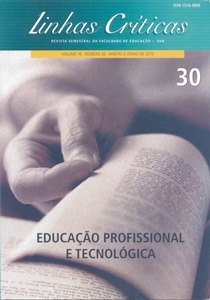La formación profesional y el trabajo decente y productivo: la acción del Cinterfor (OIT)
DOI:
https://doi.org/10.26512/lc.v16i30.3581Keywords:
Formación profesional;, Trabajo decente;, Competencias laborales;, Dialogo social;, Productividad;, EmpleoAbstract
El artículo expone la estrecha relación entre la formación profesional y el logro del objetivo de un trabajo decente y productivo. Al efecto acoge un marco de referencia que incluye a los Objetivos de Desarrollo del Milenio e instrumentos de la OIT entre los cuales están las conclusiones de la Conferencia Internacional del Trabajo (2000) sobre el desarrollo de los recursos humanos y el Pacto Mundial para el Empleo (2009). Analiza el papel clave de la formación para el mejoramiento de las competencias laborales y el rol de las instituciones de formación profesional de la región latinoamericana y del Caribe con su impronta predominante de ser escenarios de dialogo social. Finalmente presenta la red y objetivos de OIT/ Cinterfor, destaca el compromiso de las instituciones miembros expresado en la Carta de Brasilia en 2009 junto con en el apoyo a la estrategia de formación solicitada a la OIT por el G20 y expone brevemente los rasgos característicos de la formación profesional en la región.
Downloads
Downloads
Published
How to Cite
Issue
Section
License
Copyright (c) 2016 Linhas Críticas

This work is licensed under a Creative Commons Attribution 4.0 International License.
Authors who publish in this journal agree to the following terms:
-Authors maintains the copyright and grants the journal the right of first publication, the work being simultaneously licensed under the Creative Commons Attribution License which allows the sharing of the work with recognition of the authorship of the work and initial publication in this journal.
- Authors are authorized to enter into additional contracts separately, for non-exclusive distribution of the version of the work published in this journal (eg publish in institutional repository or as a book chapter), with acknowledgment of authorship and initial publication in this journal.
-Authorers are allowed and encouraged to publish and distribute their work online (eg in institutional repositories or on their personal page) at any point before or during the editorial process, as this can generate productive changes as well as increase the impact and the citation of published work (See The Effect of Free Access).



